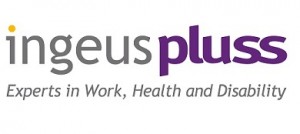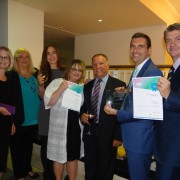By Steve Hawkins, CEO of Pluss
 Pluss has over 45 years experience of working with some of the most disadvantaged people in society. However, the fact is that today, we are working with many less severely disadvantaged people than we have done in the past.
Pluss has over 45 years experience of working with some of the most disadvantaged people in society. However, the fact is that today, we are working with many less severely disadvantaged people than we have done in the past.
This is absolutely not because the need has gone away, but as a result of the reduction in funding for these services, which has historically been provided locally.
The upcoming Building Better Opportunities contracts will provide a new range of support but these are not focussed in the way that, for example, local authority learning disability services have been in the past. And whilst we welcome the focus of the Work and Health programme, it is clear that the programme is for people with a shorter-term into-work prognosis.
At the top level then, this situation is unfortunately at odds with the objective of increasing social justice in the short-term. Increasing social justice should be about addressing disadvantage, reducing inequality and widening opportunities for all people.
In terms of real life issues facing the people that we work with today, the nature of the economy in 2016 (typified by underemployment, zero hours contracts, minimum wage jobs) and the stresses on public services mean vulnerable people’s lives are often more fragile than they have ever been.
When talking about people who are disabled, it is always good to take a step back to reflect on who they actually are. They are not some “distant” group of people – the reality is that they are all of us. The fact is that well over 85% of people with disabilities have acquired them through the course of their lives as a result of illness or injury.
By definition, people with disabilities span the social and economic spectrums. As it stands, the help available from DWP contracted provision is primarily aimed just above the bottom of the demographic – ie. entry-level jobs. This leaves huge gaps at either end of the spectrum where people are not supported – an issue which has to be addressed.
The obvious fact is that this huge degree of diversity means that a one-size approach is never going to work. Halving the disability employment gap requires us to have an amalgam of support services ranging from pre-work, into work and effective retention strategies. All need to be delivered against the specific needs of the individual if lasting change is to be achieved.
Very often one of the major barriers which we see with those people who are more marginalised is the view that work is unattainable. This is often as a result of that message having been drummed into them over a lifetime by medical professionals, schools etc. This has to change, with recognition that employment is a health outcome being vitally important.
We know that at the macro level the labour market and people’s needs will change over time. Therefore it is critical that we have a range of integrated services which embeds local expertise so that it can flex to deliver what is needed on the ground now and for the changing needs of tomorrow.
So what does this mean for commissioning?
Quality, highly effective services are required to deliver lasting results and value for money for the exchequer. We must avoid the race to the bottom in commissioning to ensure that inexpensive just doesn’t end up being cheap.
- We must retain a focus on in-work support to avoid churn and implement new retention strategies to avoid the bath tap analogy – as fast as we’re filling the labour market vacancies, it’s emptying out twice as quickly. This must take into account the numbers of people falling out of the work from professional, technical and managerial positions who have long careers behind them and who will choose not to access Jobcentre plus.
- We need to find ways to support people who cannot access DWP provision to re-enter the labour market. It is vital that government finds ways of incentivising local authorities to retain employment services for people in receipt of adult social care who are unlikely to gain access in large numbers to the Work and Health Programme.
- We need to bring on board others (such as NHS Confederation, CCGs, GP’s etc.) to support our efforts to make work a genuine and valuable health outcome for health stakeholders.
- We need to build a presumption of employability in the eyes of commissioners for those unlikely to be accommodated by the Work and Health Programme.
As well as increasing social justice for people because it’s the right thing to do, there is also a very clear economic argument.
Landman Economics modelled the economic impact of a sustained increase in the rate of employment amongst disabled people between 2105 and 2030. They found that a rise of just five percentage points would lead to
- An increase in Gross Domestic Product (GDP) of £23 billion
- A gain of £6 billion to the Exchequer
For Pluss, the argument for a return to the principles of “invest to save” in order to support effective local provision that operates alongside the DWP Work and Health Programme would seem clear.
As a sector, we need appropriate levels of funding to be available so that quality services are provided, thus ensuring that achieving social justice is more than just a pipe dream.
 The Pluss Organisation CIC is delighted to have been awarded the Work and Health Programme contract for Southern England by the Department for Work and Pensions (DWP). This result will allow Pluss to support an even greater number of people with health conditions and disabilities into sustainable work.
The Pluss Organisation CIC is delighted to have been awarded the Work and Health Programme contract for Southern England by the Department for Work and Pensions (DWP). This result will allow Pluss to support an even greater number of people with health conditions and disabilities into sustainable work.









